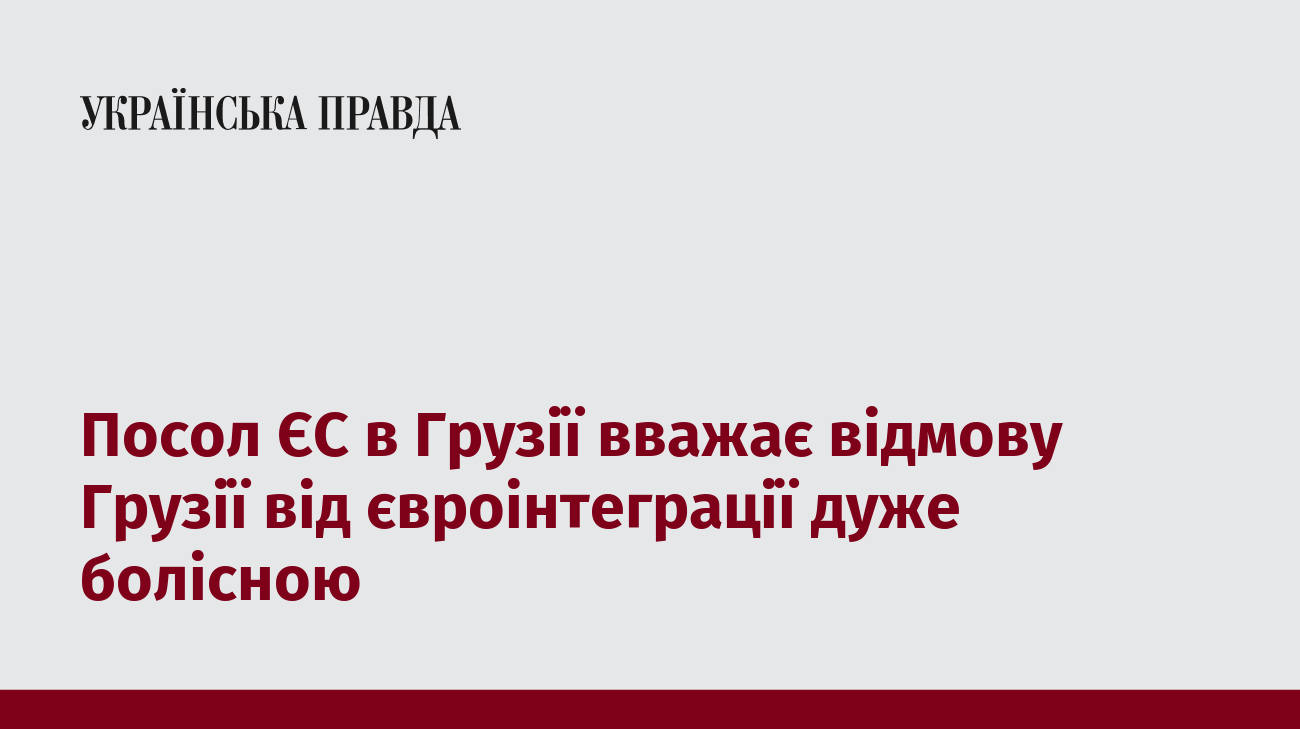“Ambassador of the EU to Georgia Pavel Gerchynskyi called the statement of the Georgian Prime Minister Irakli Kobakhidze very sad and painful that the issue of negotiations on joining the European Union will not be raised in the next four years.”, — write: www.pravda.com.ua
Ambassador of the EU to Georgia Pavel Gerchynskyi called the statement of the Georgian Prime Minister Irakli Kobakhidze very sad and painful that the issue of negotiations on joining the European Union will not be raised in the next four years.
Source: Formula news, “European truth”
Details: According to the diplomat, the decision of the “Georgian Dream” actually contradicts the policy of all previous governments of Georgia, as well as the will of the vast majority of the Georgian people.
“I think that today we all woke up to a completely new reality. We saw Mr. Kobakhidze’s statement yesterday, where he said that Georgia is not interested in continuing European integration for the next four years. Of course, this is very sad, it is really painful for me.” , – said Herchynskyi.
The ambassador noted that two years ago, when he came to Georgia, the President of the European Commission, Ursula von der Leyen, publicly stated that Georgia belongs to the European Union, and that the European Union would not be complete without Georgia.
He noted that he was proud of the fact that the EU decided to open its doors to Georgia, and called the course chosen by the current government of Georgia contrary to the will of the vast majority of Georgians.
“Of course, Georgia is an independent state. Georgia is a sovereign state. Georgia decides for itself whether it wants to continue European integration or not. In my opinion, this is very sad, very unfortunate and painful,” said Herchynskyi.
On November 28, the Prime Minister of Georgia, Iraklii Kobakhidze, announced a pause in the negotiations on EU accession. According to him, Tbilisi will postpone the start of negotiations with the European Union until the end of 2028, and will join the EU by 2030.
Kobakhidze explained this decision as “blackmail” offensive to Georgia by some European politicians and bureaucrats.
The Prime Minister’s statement was preceded by the adoption of a tough resolution of the European Parliament, which refers to the non-recognition of the results of the parliamentary elections in Georgia held on October 26.
On the night of November 29, special agents of the Ministry of Internal Affairs of Georgia violently dispersed a protest in the center of Tbilisi, which began due to the authorities’ decision to suspend European integration.
